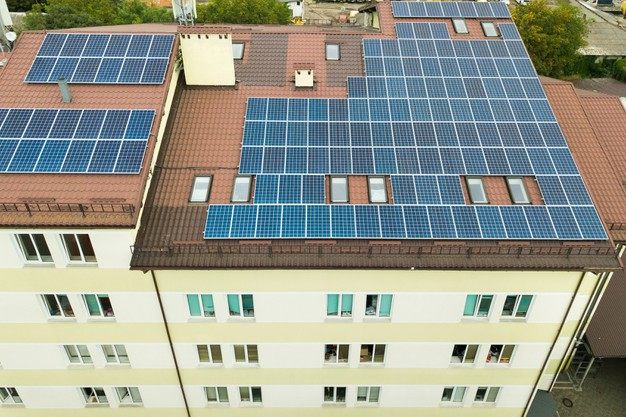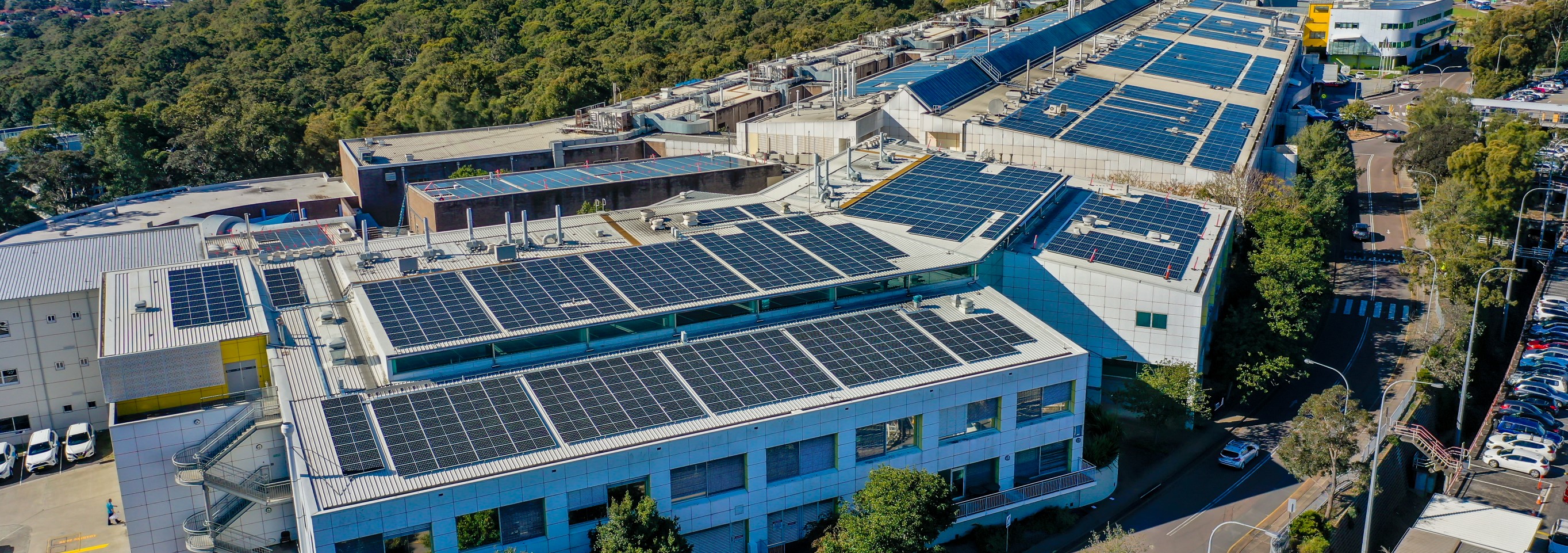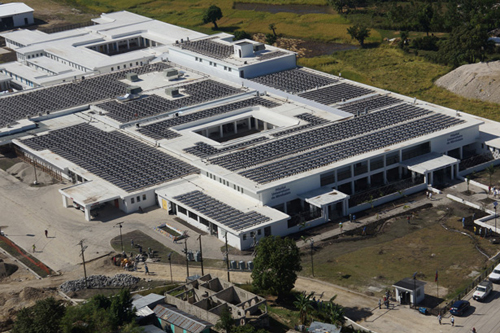Introduction
The Concept Of A Solar Hospital Represents A Convergence Of Sustainable Energy Solutions And Healthcare Infrastructure. In This Comprehensive Guide, We Will Explore The Facets Of Solar Hospitals, Detailing Their Design Considerations, Operational Advantages, And The Broader Impact They Can Have On Both The Environment And The Provision Of Healthcare Services.
Understanding Solar Hospitals: A Vision For Sustainable Healthcare
A Solar Hospital Is A Healthcare Facility That Integrates Solar Energy Solutions Into Its Infrastructure To Meet A Significant Portion Of Its Energy Needs. This Innovative Approach Not Only Addresses The Environmental Impact Of Conventional Energy Sources But Also Introduces Resilience And Cost-Efficiency To The Healthcare Sector.
Design Considerations For Solar Hospitals

- Solar Panels Integration: The Cornerstone Of A Solar Hospital Is The Integration Of Solar Panels Into Its Design. These Panels, Typically Installed On The Roof Or In Dedicated Areas, Harness Sunlight And Convert It Into Electricity To Power Various Hospital Operations.
- Energy Storage Systems: To Ensure Continuous Energy Supply, Solar Hospitals Often Incorporate Energy Storage Systems, Such As Batteries. These Systems Store Excess Solar-Generated Power For Use During Periods Of Low Sunlight, Providing A Consistent And Reliable Energy Source.
- Energy-Efficient Architecture: Beyond Solar Technology, The Architectural Design Of A Solar Hospital Emphasizes Energy Efficiency. This May Involve Strategic Placement Of Windows, Use Of Energy-Efficient Lighting, And Insulation To Minimize Energy Consumption.
Operational Advantages Of Solar Hospitals
- Cost Savings: Solar Hospitals Can Experience Significant Cost Savings Over Time, As The Initial Investment In Solar Infrastructure Is Often Offset By Reduced Reliance On Traditional Energy Sources. Lower Energy Bills Contribute To Long-Term Financial Sustainability.
- Environmental Impact: The Adoption Of Solar Energy Aligns With Environmental Sustainability Goals. Solar Power Is A Clean And Renewable Energy Source, Reducing A Hospital’s Carbon Footprint And Minimizing Its Contribution To Air Pollution And Climate Change.
- Energy Independence: Solar Hospitals Gain A Degree Of Energy Independence By Generating Their Power. This Reduces Dependence On The Grid, Making Them More Resilient During Power Outages Or Disruptions, Ensuring Continuous Healthcare Services.
Implementation Challenges And Solutions
- Initial Investment: The Upfront Cost Of Installing Solar Infrastructure Can Be A Significant Barrier. However, Various Financing Models, Government Incentives, And Grants Are Available To Support Healthcare Institutions In Making The Initial Investment.
- Space Constraints: Some Hospitals May Face Space Limitations For Installing Solar Panels. Creative Solutions, Such As Vertical Solar Installations Or Utilizing Adjacent Land For Solar Farms, Can Overcome This Challenge.
- Maintenance And Expertise: Solar Infrastructure Requires Maintenance And Expertise. Hospitals Need To Invest In Training Staff Or Partnering With External Providers For Regular Maintenance And Troubleshooting To Ensure Optimal Performance.
Case Studies: Realizing The Potential Of Solar Hospitals

- Luthuli Mission Hospital, Kenya: Luthuli Mission Hospital In Kenya Successfully Implemented A Solar Power System, Reducing Its Reliance On The Grid And Improving Its Ability To Provide Uninterrupted Healthcare Services To The Local Community.
- Coimbatore Medical College Hospital, India: Coimbatore Medical College Hospital In India Embraced Solar Energy, Significantly Cutting Down On Energy Costs. This Shift Not Only Saved Money But Also Contributed To The Hospital’s Commitment To Environmental Responsibility.
Global Initiatives And Trends In Solar Healthcare
- Government Policies And Incentives: Many Countries Are Introducing Policies And Incentives To Encourage Healthcare Institutions To Adopt Solar Energy. These Measures Often Include Tax Benefits, Subsidies, And Streamlined Approval Processes For Solar Installations.
- Collaborative Initiatives: Collaborations Between Governments, Non-Profit Organizations, And Private Enterprises Are Fostering The Growth Of Solar Hospitals. These Partnerships Aim To Overcome Challenges, Share Best Practices, And Expand The Adoption Of Sustainable Energy Solutions In The Healthcare Sector.
Future Outlook: The Role Of Solar Hospitals In Sustainable Healthcare
- Scaling Solar Solutions: The Success Stories Of Solar Hospitals Underscore The Potential For Scaling Solar Solutions In Healthcare. As Technology Advances And Costs Decrease, The Integration Of Solar Energy Is Likely To Become More Prevalent In Hospitals Globally.
- Innovation In Healthcare Infrastructure: Solar Hospitals Represent A Broader Trend Towards Innovative And Sustainable Healthcare Infrastructure. Future Developments May Include The Integration Of Advanced Energy Storage Solutions, Smart Grid Technologies, And Even More Efficient Solar Panels.
How Hospitals Can Transition To Solar Energy: Practical Steps
- Energy Audit: Conduct A Thorough Energy Audit To Understand Current Energy Consumption Patterns And Identify Areas Where Solar Energy Can Be Integrated Effectively.
- Feasibility Study: Perform A Feasibility Study To Assess The Economic Viability Of Transitioning To Solar Energy. Consider Factors Such As Available Sunlight, Local Incentives, And The Hospital’s Energy Needs.
- Engage Stakeholders: Involve Hospital Staff, Administrators, And Local Communities In The Decision-Making Process. Building Support And Awareness Are Crucial For A Successful Transition To Solar Energy.
Conclusion: Lighting The Path To Sustainable Healthcare With Solar Hospitals
The Integration Of Solar Energy Into Hospital Infrastructure Represents A Significant Stride Towards Sustainable And Resilient Healthcare. From Cost Savings To Environmental Impact And Improved Energy Independence, Solar Hospitals Showcase The Potential For Aligning Healthcare Services With Eco-Friendly Practices. As The Global Community Emphasizes The Importance Of Sustainable Development, Solar Hospitals Stand As Beacons Of Innovation, Lighting The Way For A Greener And More Resilient Future In Healthcare.
